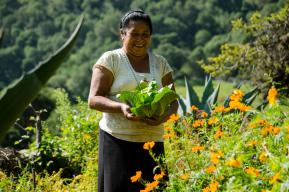Article
New UNESCO Biosphere Reserves in Asia

The Man and the Biosphere (MAB) Programme’s International Coordinating Council approved 11 new Biosphere Reserves – including 4 in Asia and the Pacific – during its 35th meeting held at UNESCO Headquarters in Paris, on 12 – 15 June 2023.
The four new Biosphere Reserves in Asia and the Pacific make a significant contribution to the region’s engagement with the MAB programme for a sustainable future for people and planet.
Biosphere reserves are a pillar of UNESCO's mandate as the United Nations sciences agency. Each biosphere reserve promotes innovative local solutions, in order to conserve biodiversity, preserve ecosystems and tackle climate change, while improving people's livelihoods, by developing agro-ecology, renewable sources of energy and green industries.
New biosphere reserves were established in Cameroon, Central African Republic, Colombia, Germany, Indonesia, Mongolia and Pakistan, with one transboundary biosphere reserve across Kenya and Uganda.
The World Network of Biosphere Reserves now counts 748 sites in 134 countries, including 23 transboundary sites with 43 sites are located in Southeast Asia.
The new designations in Asia are:
- Indonesia: Bantimurung Bulusaraung - Ma'Rupanne Biosphere Reserve
- Mongolia: Onon-Balj Biosphere Reserve
- Pakistan: Chitral Bashkar Garmchashma Biosphere Reserve
- Pakistan: Gallies Biosphere Reserve






